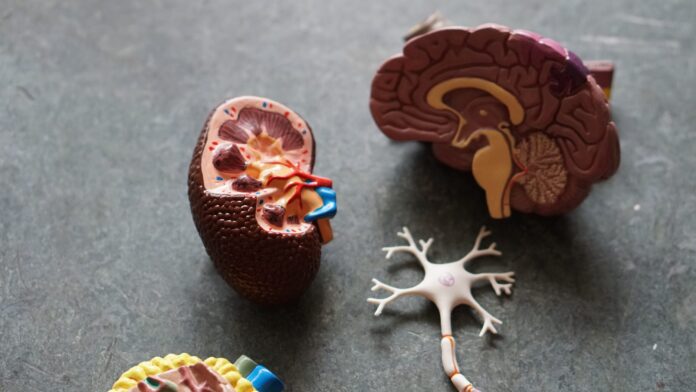Leigh syndrome (LS) is one of the most puzzling mitochondrial disorders, which is also known as subacute necrotizing encephalopathy. It has an incidence of 1 in 77,000 live births worldwide with poor prognosis. Currently, there is a poor understanding of the underlying pathophysiological mechanisms of the disease without any available effective treatment. Hence, the inevitability for developing suitable animal and cellular models needed for the development of successful new therapeutic modalities. In this short report, we blocked FOXRED1 gene with small interfering RNA (siRNA) using C57bl/6 mice. Results showed neurobehavioral changes in the injected mice along with parallel degeneration in corpus striatum and sparing of the substantia nigra similar to what happen in Leigh syndrome cases. FOXRED1 blockage could serve as a new animal model for Leigh syndrome due to defective CI, which echoes damage to corpus striatum and affection of the central dopaminergic system in this disease. Further preclinical studies are required to validate this model.
Salama M, El-Desouky S, Alsayed A, El-hussiny M, Moustafa A, Taalab Y., Mohamed W. (2018) FOXRED1 silencing in mice: A possible animal model for Leigh Syndrome. Metab Brain
Image credit: Robina Weermeijer – unsplash.com
Institute of Global Health and Human Ecology, American University in Cairo, Egypt
Dr Mohamed Salama established the first Translational Neuroscience Unit in Egypt. Mohamed’s collaborative research led to establishing the Egyptian Network for Neurodegenerative Disorders (ENND). Mohamed was selected as a SOT Global Senior Scholar in 2013 and Translational/bridging awardee in 2016. He was awarded by Parkinson’s and Movement Disorders Foundation (PMDF) for his continuing research in the field of neurodegeneration.
Recently, Mohamed and his colleagues succeeded to draft the first Reference Egyptian Genome and collaborating with other colleagues to start a national cohort (A Longitudinal Study of Egyptian Health Aging [AL-SEHA]). Currently, Mohamed is Atlantic senior fellow for Equity in brain health at the Global Brain Health Institute (GBHI) and Associate professor at the Institute of Global Health and Human Ecology at the American University in Cairo (AUC).



